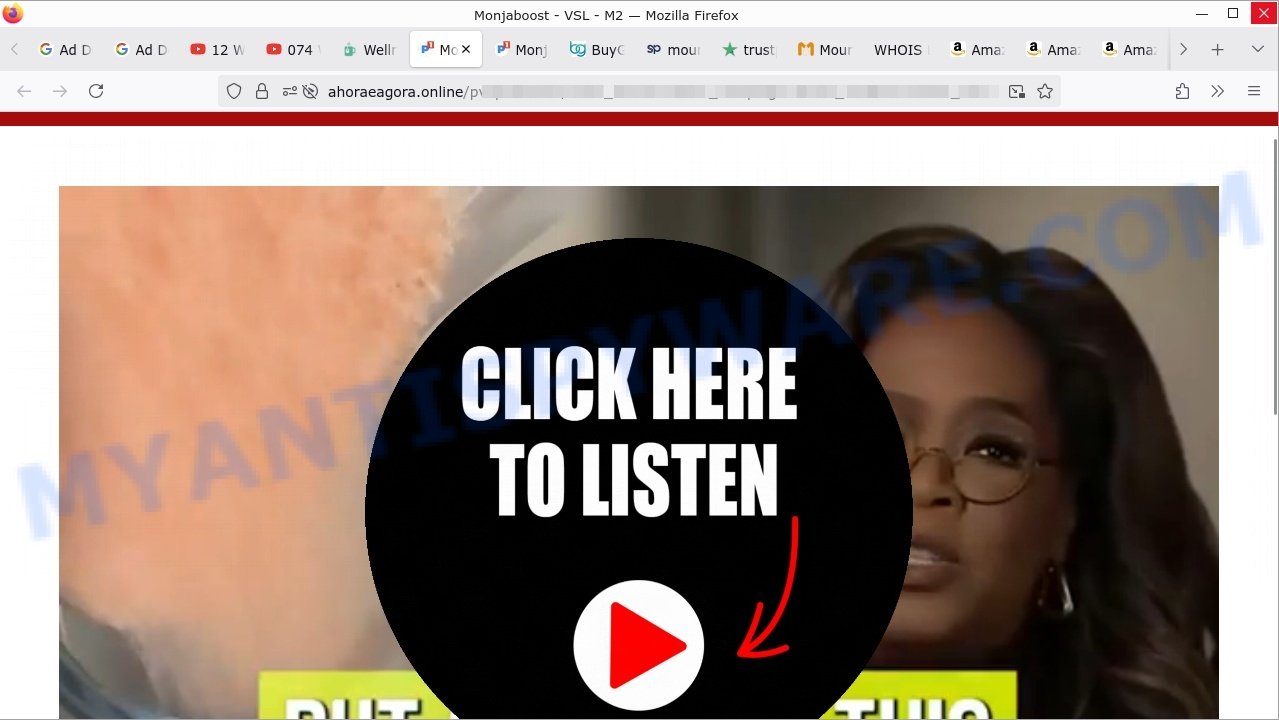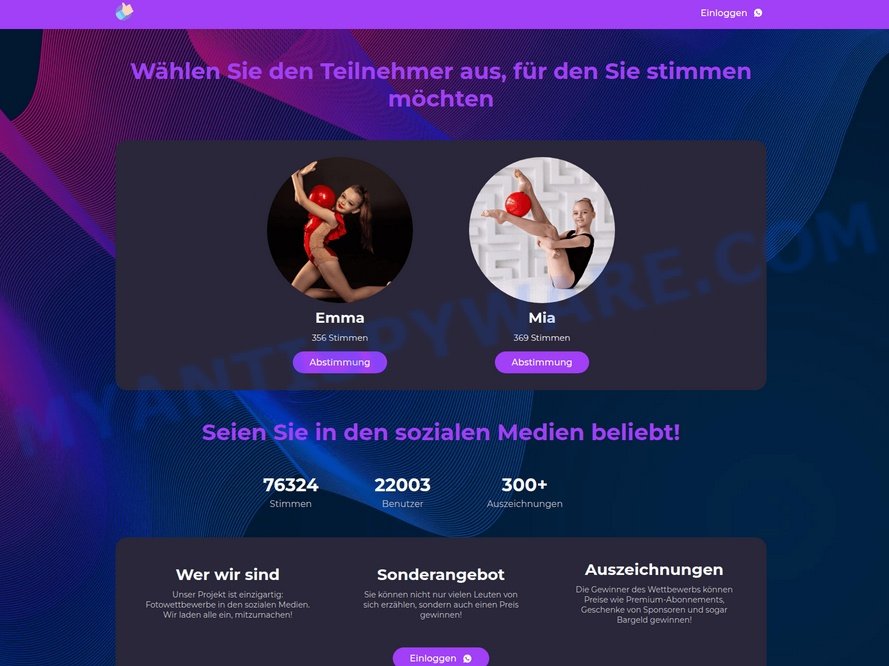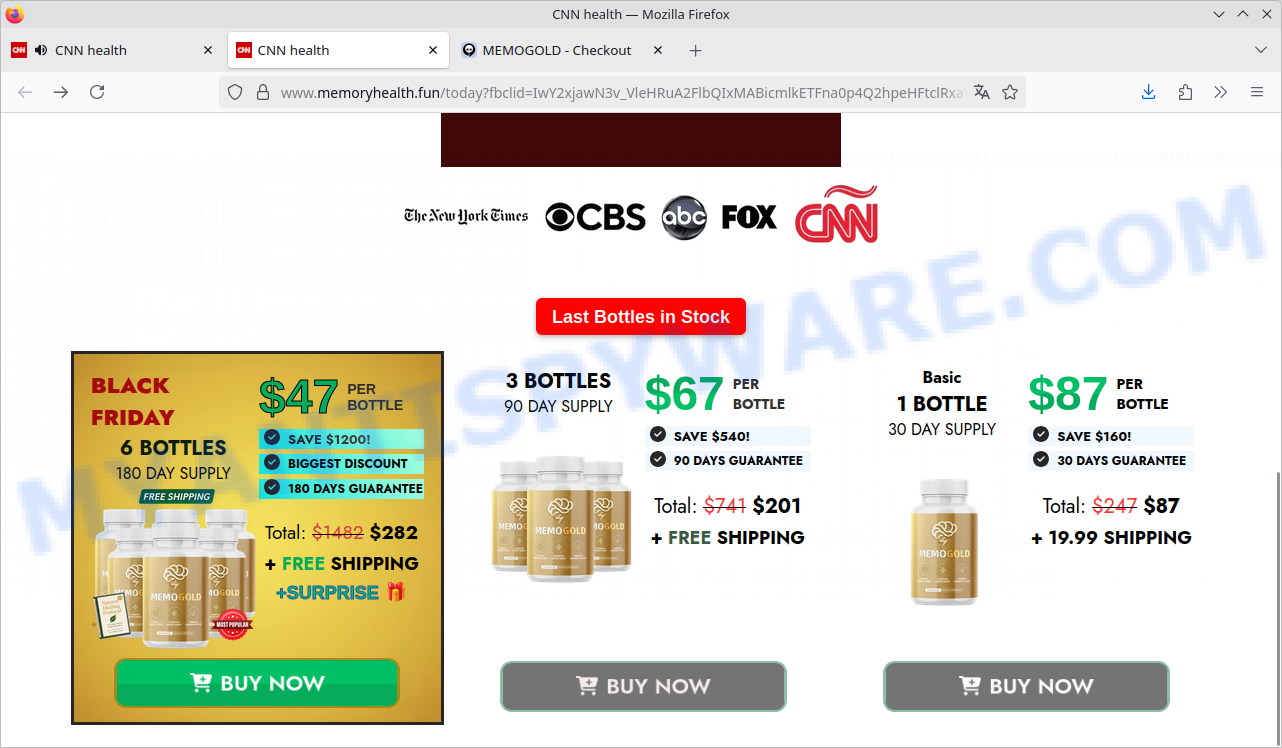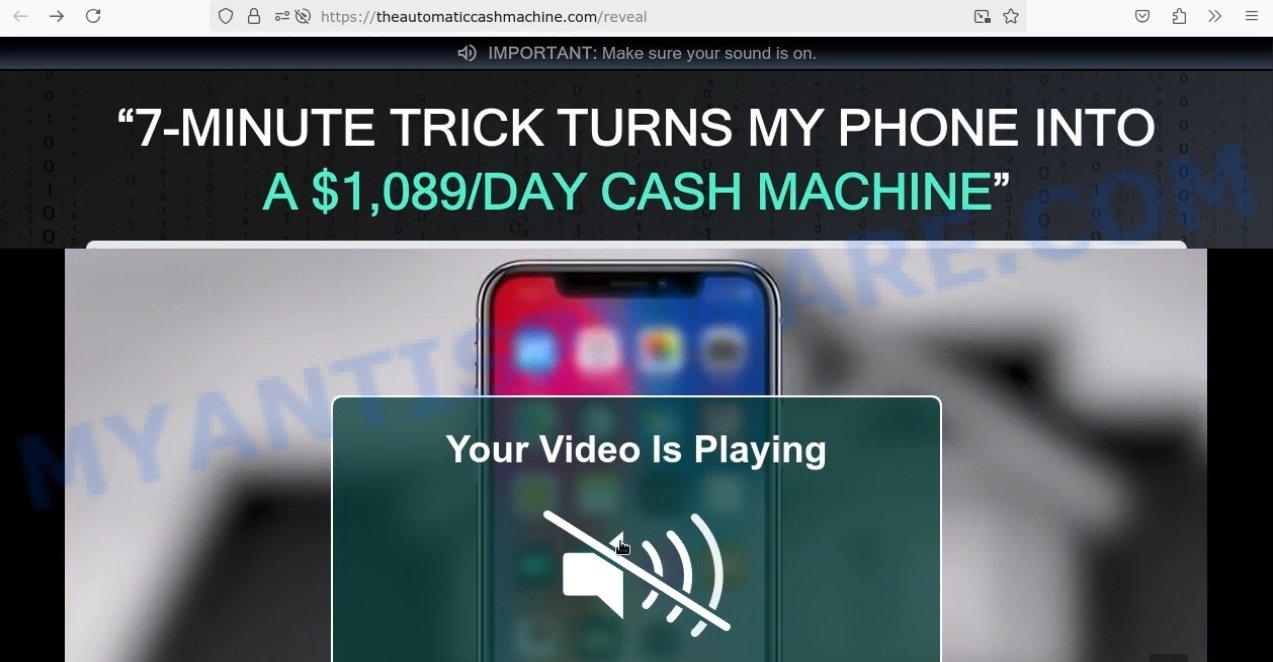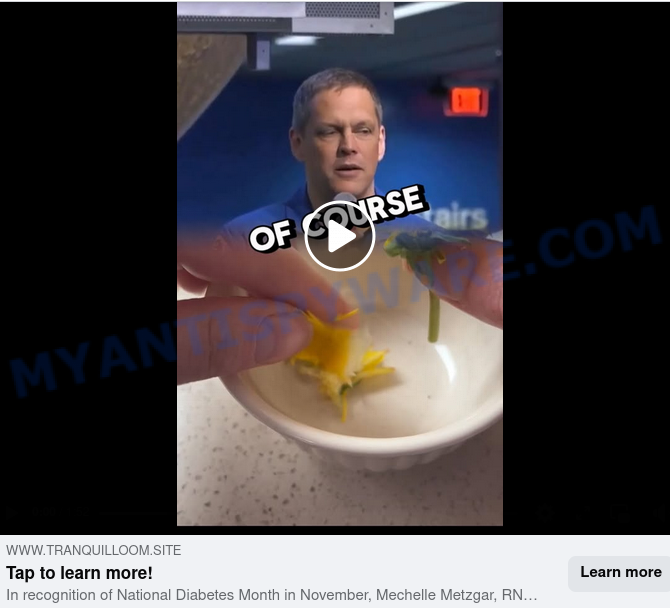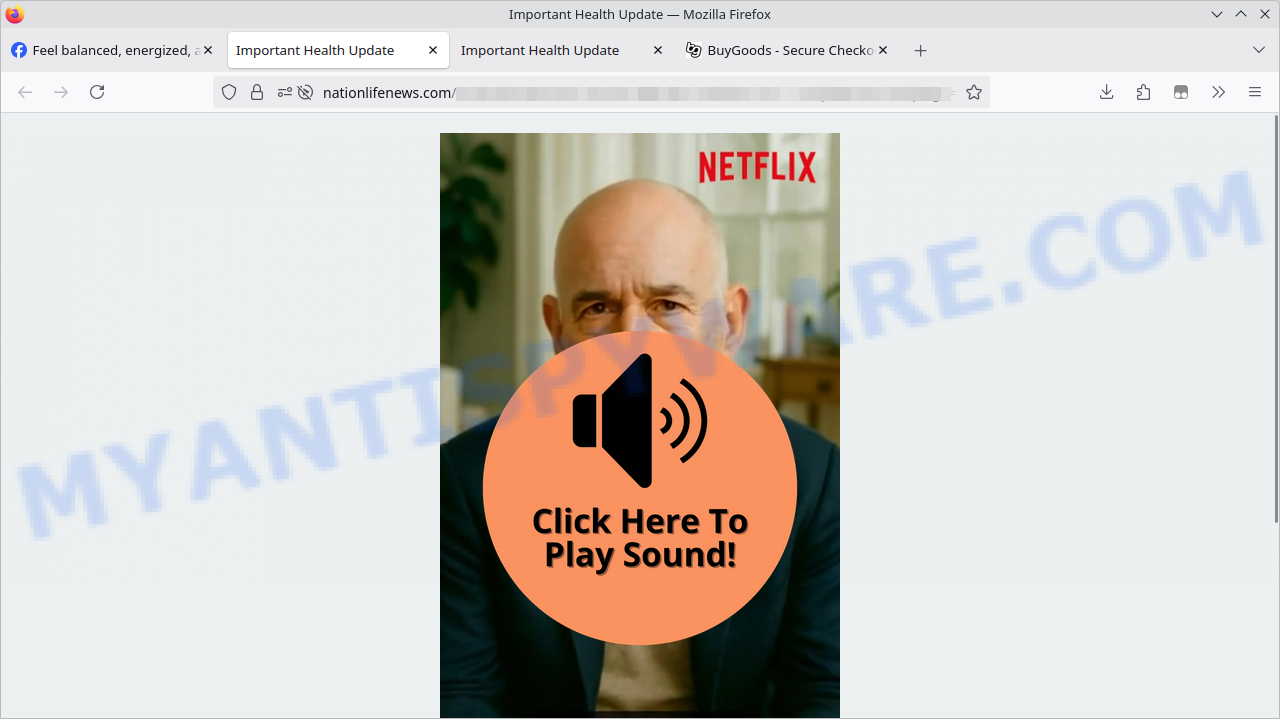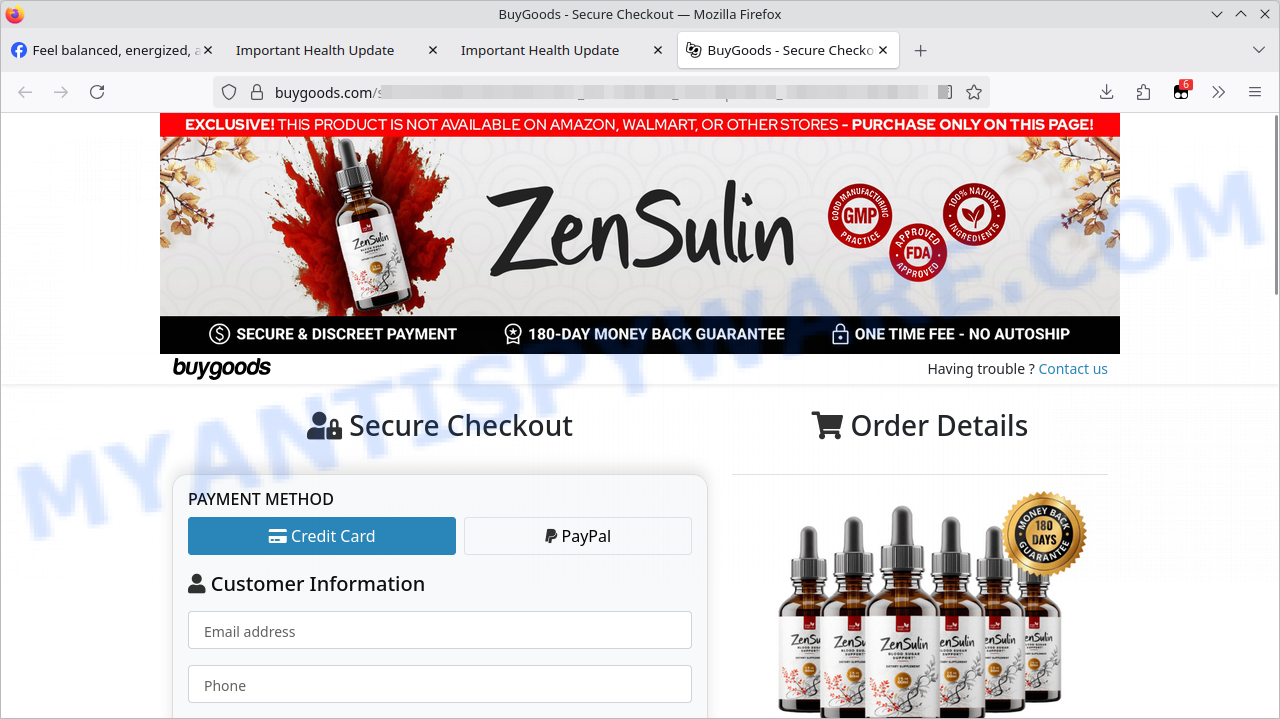ZenSulin is pitched as a miracle blood-sugar support supplement sold through an elaborate online funnel that starts with Facebook ads and ends on slick sales pages packed with fake trust badges and misleading claims. The marketing promises a “simple hack” for stabilizing blood sugar, but the whole thing is a bait-and-switch designed to push pricey bottles of ZenSulin without delivering any real information or results.
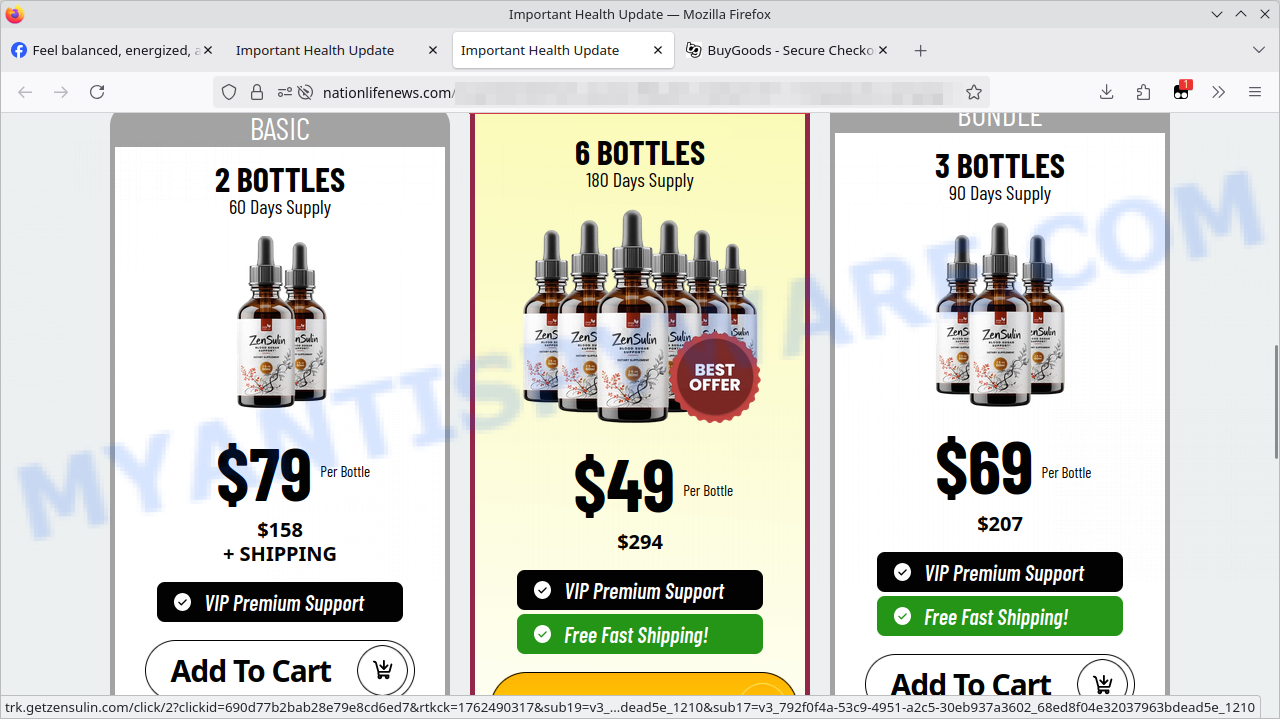
What’s really going on? The ads hijack familiar logos like Netflix and spam fake counters claiming “72,000+ people watching now”, all to create a sense of urgency and credibility—none of which is backed by fact. The so-called “FDA approved” and “100% natural” badges are just images meant to trick buyers. No genuine doctors, media endorsements, or authentic proof support the product’s claims. When the sales video ends, the true pitch appears, encouraging visitors to buy large bundles with “180-day money-back guarantees” that are often meaningless.
If you enter your personal and payment info through their checkout—which processes through buygoods.com—you’re risking your data and money on an empty promise. ZenSulin’s entire “blood sugar hack” is a smokescreen: no method is given, only a hard sell. Don’t fall for the hype. Stay clear of these deceptive funnels that prey on health concerns with flashy lies and fake credibility. Your safest move? Ignore ZenSulin and look to trusted healthcare professionals instead.
💡 Heads-up: Similar Scams Are Everywhere. ZenSulin is not unique. It is one of many fake supplements, gadgets, and other schemes we expose in our Fact Checks section. All of them aim to grab your personal data or money. The people behind these scams run slick websites, spread bogus promo codes, and even pose as trusted brands or experts. Below are a few recent scams that follow the same playbook as ZenSulin: Jillian Michaels Coffee Trick Recipe, Gluco Control Drops, Orivelle Nail Fungus Pen, Koaly AI plush Koala, CrazyLeaf SMGT-GLP-1 Nano Microneedle Patch.
Table of Contents
🚨 Is ZenSulin a Scam?
ZenSulin is heavily promoted using misleading tactics that target individuals seeking an easy and quick solution to balance blood sugar levels. These deceptive marketing methods are commonly employed by scams aiming to exploit vulnerable consumers looking for health improvements without credible evidence or real support.
Key Red Flags:
- 🌐 Suspicious Promotional Channels: ZenSulin advertisements originate from dubious Facebook pages and funnel users through questionable domains such as tranquilloom.site and nationlifenews.com, which imitate reputable media sites to appear trustworthy.
- ⭐ Fabricated Media Endorsements and Trust Badges: The funnel misleadingly displays the “NETFLIX” logo, bogus live viewer counters, and multiple fake trust seals claiming “FDA Approved”, “GMP”, “100% Secure”, and “Satisfaction Guaranteed”. None of these claims have any verifiable backing.
- 🔒 Deceptive Website and Video Content: The landing page mimics an “Important Health Update” with a prominent video that never reveals the promised “blood sugar hack”. Instead, it eventually reveals a sales pitch for ZenSulin products, using emotionally manipulative and vague language without scientific support.
- ⚠️ Misleading Health Claims: The product is marketed as a miraculous dropper bottle solution to stabilize blood sugar levels effortlessly. These exaggerated claims lack clinical evidence and are aimed at generating quick sales rather than providing effective health benefits.
- 📉 Aggressive Sales Tactics and Pressure Offers: The pricing strategy includes inflated “normal prices” heavily discounted at checkout, combined with urgency-driven language like “Exclusive Discount” and “Limited Time Offer”, pressuring consumers into hasty purchases.
- 👤 No Verifiable Expert or Medical Endorsements: The promotion does not feature any genuine doctors, licensed health professionals, or credible media organizations supporting the product or its claims.
- 🔗 Risky Payment Process: Payments are processed through third-party sites like buygoods.com, exposing buyers to potential data risks. Despite the prominent “180-Day Money Back Guarantee”, refunds may be difficult or impossible to obtain.
In summary, ZenSulin’s marketing and sales funnel exhibit many hallmarks of a scam designed to deceive consumers. The misuse of fake media logos, fabricated endorsements, false health claims, and manipulative sales tactics highlight that this product is not a legitimate blood sugar support solution. It is strongly advised to steer clear of ZenSulin and consult qualified healthcare professionals for proven and safe treatments to manage blood sugar levels.
🕵️♂️ How ZenSulin Scam Operates
ZenSulin is a fraudulent supplement scam. 🚨 It’s a deceptive marketing scheme promoting a fake “blood sugar hack” using dropper bottles of supposed health supplements with unsupported claims. 🔗 Step-by-Step Breakdown of the Scam:
📱 Social Media Advertising
Scammers advertise ZenSulin on platforms like Facebook. They post enticing videos claiming you can “Feel balanced, energized, and in control again ⚡” with phrases like “STABILIZE BLOOD SUGAR” and display fake URLs like tranquilloom.site to capture attention and generate clicks.
🌐 Redirect to Deceptive Landing Pages
Clicking the ad sends users to pages like nationlifenews.com styled as “Important Health Updates”. These pages feature misleading videos supposedly sharing a “blood sugar hack” but never deliver any actual helpful information. Instead, they funnel visitors toward a sales section pushing ZenSulin.
🎥 Fake Video Presentation
The sales videos use generic health claims from an unnamed spokesperson, promising results without explaining any real method. The video often overlays fake elements—like a “NETFLIX” logo and a “72,046 people watching now” live counter—to create false credibility and urgency.
🔖 False Trust Badges & Misleading Claims
The site shows numerous fake badges such as “100% Secure”, “FDA Approved”, and “Satisfaction Guaranteed” to simulate authority. These claims are untrue; dietary supplements are not FDA-approved, and the badges are nothing more than images with no verification.
📦 Fake Product Offers & Inflated Prices
ZenSulin is offered in dropper bottles with bundle deals like “2 bottles”, “3 bottles”, and “6 bottles” packages. The pricing tricks include slashing inflated “normal prices” (e.g., from over $1,000 down to $294) to pressure buyers into feeling they are getting an exclusive deal.
💳 Risky Payment & Data Collection
Buying requires entering personal and payment information on third-party checkout processors like BuyGoods. Despite promises of “180 Day Money Back Guarantee” and “VIP Support”, refunds are rarely honored, and customer service is non-responsive.
🚫 No Real Blood Sugar Hack Revealed
The core claim of a simple “blood sugar hack” is a bait-and-switch tactic; no actual solution or recipe is shared. The product’s effectiveness is unproven, and all health claims lack scientific backing or medical endorsement.
⚠️ Misuse of Popular Logos & False Associations
Using the “NETFLIX” logo and news-like website design misleads visitors into thinking ZenSulin has media backing, which it does not. No credible doctors, companies, or news outlets endorse or verify this product or promotion.
In summary, the ZenSulin scam manipulates consumers through fake videos, misleading endorsements, false trust badges, and inflated limited-time offers to sell ineffective supplements. Buyers end up wasting money on a worthless product with no legitimate way to get refunds or support. Always research carefully and avoid health product funnels that pressure for quick purchases without transparent information.
😱 What to Do If Scammed
If you find yourself ensnared by the ZenSulin Scam, immediate action is crucial. Here’s what you should consider doing:
🛑 Stop Further Transactions
The first step is to halt any additional transactions that might be in process. Contact your bank or credit card provider and inform them that you’ve fallen victim to a scam. They can help by blocking the card or reversing any unauthorized transactions.
📞 Report the Fraud
File a report with your local police and provide all the available evidence, such as screenshots, emails, and website URLs. Additionally, report the scam to online portals like the Better Business Bureau (BBB) at www.bbb.org or the Federal Trade Commission (FTC) at reportfraud.ftc.gov. If you’re in another country, reach out to your national consumer protection agency.
💻 Take Screenshots
Before the scam website gets taken down or changes, make sure to capture screenshots of your transactions and communications. These can serve as evidence if you decide to pursue legal action.
⚖️ Consult Legal Advice
Speak to a legal advisor about your situation. While pursuing legal action may be time-consuming and costly, it could be a possible avenue for recovering your lost money.
📢 Share Your Experience
Use social media platforms to share your experience and warn others about the scam. Your story could prevent someone else from falling victim to the same or similar scams.
Summary Table
| Factor | Observations | Impact on Legitimacy |
|---|---|---|
| Product Description | ZenSulin is advertised as a blood sugar support supplement in dropper bottles, promoted through a fake online funnel claiming a simple “blood sugar hack” to stabilize blood sugar. The product relies on misleading messages without providing any real method or scientific evidence backing its effectiveness. | Negative (Unproven claims and deceptive product presentation) |
| Marketing Channels | The product is pushed via a Facebook page with videos and links that guide users through suspicious websites using fake counters, false trust badges, and misleading logos like “NETFLIX” to create a sense of authority and credibility. | Negative (Misleading ads and fake credibility tactics) |
| Website and Sales Funnel | The landing pages imitate news sites and show fake live viewer counts and trust seals. The sales sections appear only after watching videos that do not deliver the promised information, applying pressure with exaggerated discounts and “limited” offers. | Negative (Deceptive sales funnel and high-pressure marketing) |
| False Endorsements and Certifications | Claims of FDA approval, GMP certification, and media endorsements (including Netflix) are false. Dietary supplements cannot be FDA approved in this way, and the use of these logos is misleading and untrue. | Negative (False claims of approval and endorsements) |
| Pricing and Offers | Prices are inflated and then heavily discounted, with messages like “Normal Price $1,074.00” crossed out to “Your Price $294.00”. The checkout page emphasizes guarantees and free shipping but uses pressure tactics to push quick purchases. | Negative (Misleading pricing and pressure tactics) |
| Payment and Data Security | Checkout is handled by a third-party processor asking for personal and payment details. Despite security badge images, the information may be at risk, and the refund process is unclear and likely difficult. | Negative (Potential risk to personal data and unclear refund policy) |
| Customer Support and Transparency | The funnel uses fake trust signals but lacks real contact information or support. There is no way to confirm the company’s identity or hold them accountable if issues arise. | Negative (Lack of reliable customer support and transparency) |
| Overall Legitimacy | ZenSulin uses dishonest marketing, fake endorsements, and misleading web design to sell an unproven product. Consumers are at risk of losing money and personal information by trusting these claims. | Negative (Scam with various deceptive practices) |
Conclusion
The ZenSulin Blood Sugar Hack promotion is a scam that uses deceptive marketing tactics, fake credibility badges, and misleading claims to lure consumers into buying a questionable supplement. The product is pushed through a convoluted online funnel featuring a fake “blood sugar hack”, a phony “NETFLIX” endorsement, and bogus urgency signals like a fabricated “watching now” counter. None of the promised health benefits or simple methods to stabilize blood sugar are actually disclosed.
The website and advertisements misuse logos, fabricated guarantees, and unfounded FDA approval claims to create a false sense of trust. The sales pages aggressively promote large bundle purchases with inflated “discounted” prices and fake satisfaction guarantees that offer little real protection for buyers. They rely heavily on psychological pressure tactics rather than legitimate scientific proof or credible expert endorsements.
Bottom Line: Avoid ZenSulin and the associated sales funnels on tranquillo om.site and nationlifenews.com. Do not provide personal or payment information through these channels, as the product lacks verification, proven efficacy, or reliable refund support. Always research health products thoroughly and be wary of marketing that depends on scams, fake endorsements, and unverifiable testimonials. If an offer seems too good to be true and pressures you to buy quickly, it is almost certainly a fraud. Stay cautious and protect your health and finances.
